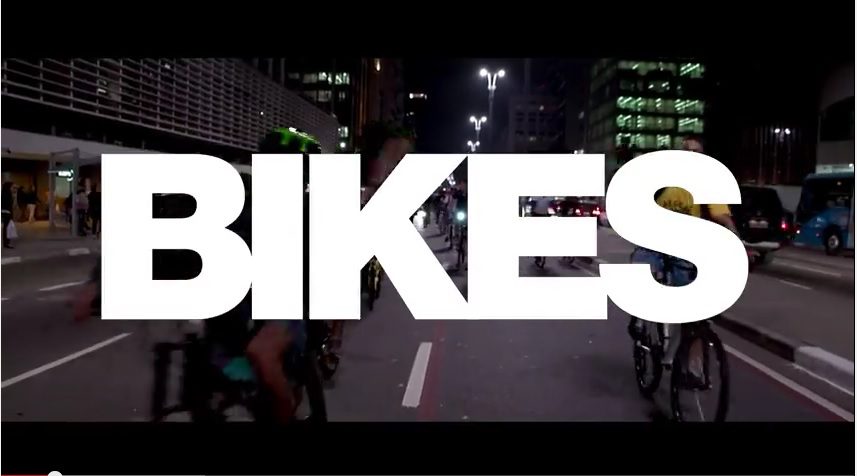New film, “Bikes vs. Cars,” about more than road rage
Swedish journalist and filmmaker Fredrik Gertten has released a new film, titled Bikes vs. Cars.

Swedish journalist and filmmaker Fredrik Gertten has released a new film, titled Bikes vs. Cars. It’s a look at what Gertten himself sees as the ever-fluctuating dynamic of transportation in cities, but it also carries shades of everything from grassroots politics to the nature of urban existence — two inescapable overtones of the transportation discussion, the film suggests.
Bikes vs. Cars: more than a title, it’s a discursive starting point bound to resonate strongly with cyclists. But what divides cyclists and motorists in the modern municipality, Gertten says — using Toronto, Mumbai, Sao Paulo, Copenhagen, and Bogota as examples — also unites them. While cyclists are routinely shafted by institutional indfference, motorists suffer, too.
“In almost every city on the planet, there are people suffering in cars, suffering in traffic,” Gertten told Canadian Cycling Magazine. “When there are people suffering in traffic, there are always politicians who come in and say, ‘I want to help you; vote for me.'” In the case of Toronto, he says, that political dynamic played itself out in the person of Rob Ford.
“He said, ‘I will save all you suffering poor people in traffic,'” Gertten continued, “and then they voted for him. And of course, Rob Ford could never deliver anything to the voters.”
Ultimately, the Swedish director says, it’s a common story — even on an international level.
As Canadian news-consuming audiences became too aware, the story of Rob Ford, and the story of Toronto under his leadership, were political passion plays on a number of fronts. Transportation, and how to share it between motorists, cyclists and pedestrians, featured early and prominently in that discussion, with cyclists sounding a call to action as a result. But to Gertten, as he argues in his new film, transportation has value beyond being a wedge issue that divides municipalities. By that measure, the discussion becomes something more valuable: a metric for evaluating how cities are cultivating progress.
In many of its aspects, Bikes vs. Cars is a familiar narrative: bikes are good, cars are bad, urban congestion is worse, and people are, in many ways, enslaved by their cars — either by being stuck in traffic, or simply by having no other option than to drive. As such, the film’s look at cycling is somewhat emancipatory: cars are inflexible, Gertten told Canadian Cycling Magazine, while bikes aren’t, both economically and in their use of space .
As might resonate with residents of Toronto, though, the duality of bike and car also becomes a game of municipal chess.
“What we can see from Toronto was really clear,” Gertten said. “It’s the suburbs — the people who voted for Ford — and downtown. You can see the same pattern in many many cities all around the world. Toronto is not as atypic as you sometimes believe. It’s just one more city where people are frustrated in cars, or frustrated in traffic, and we have to see that the people who are stuck in traffic are also victims of poor city planning. So people in cars, stuck in traffic, are also victims.” Victims, he specifies, of city planning that sees both columns of traffic — car and bike — as mutually exclusive.
“The same poor city planning is also killing bicycling,” Gertten said. “Bicyclists are not killed by cars or crazy drivers. They’re basically killed by [a] poor city plan. And so, this film is about city planning. With bikes vs. cars, it’s about two ways of building a city.”
Gertten’s film addresses that, looking at how urban and cycling advocates are trying to change this narrative, designing cities around cycling rather than the other around. While recognizing the David-vs.-Goliath aspect of it all, the only criticism that comes to mind about Bikes vs. Cars is that, in light of all this, the director almost makes changing that narrative seem too easy.
But making a film about the matter is definitely a start.
